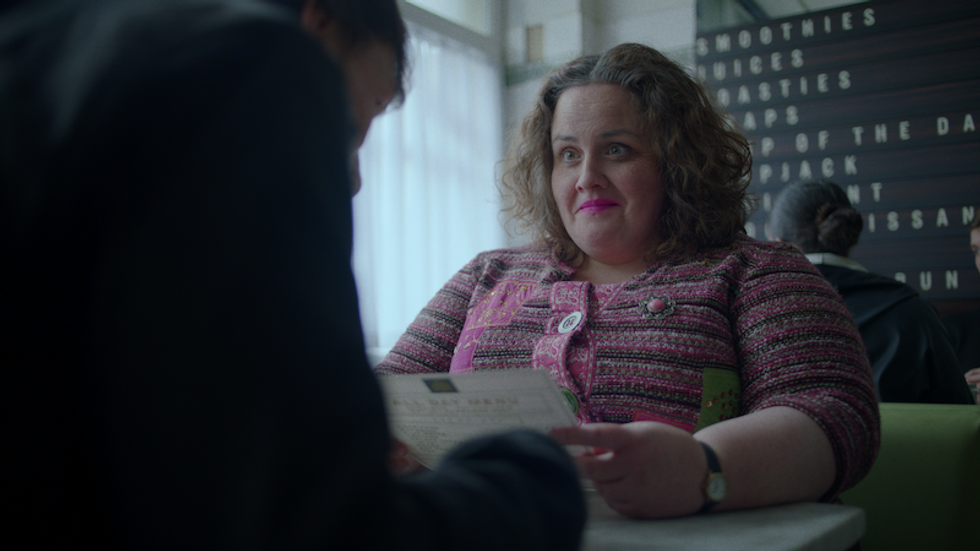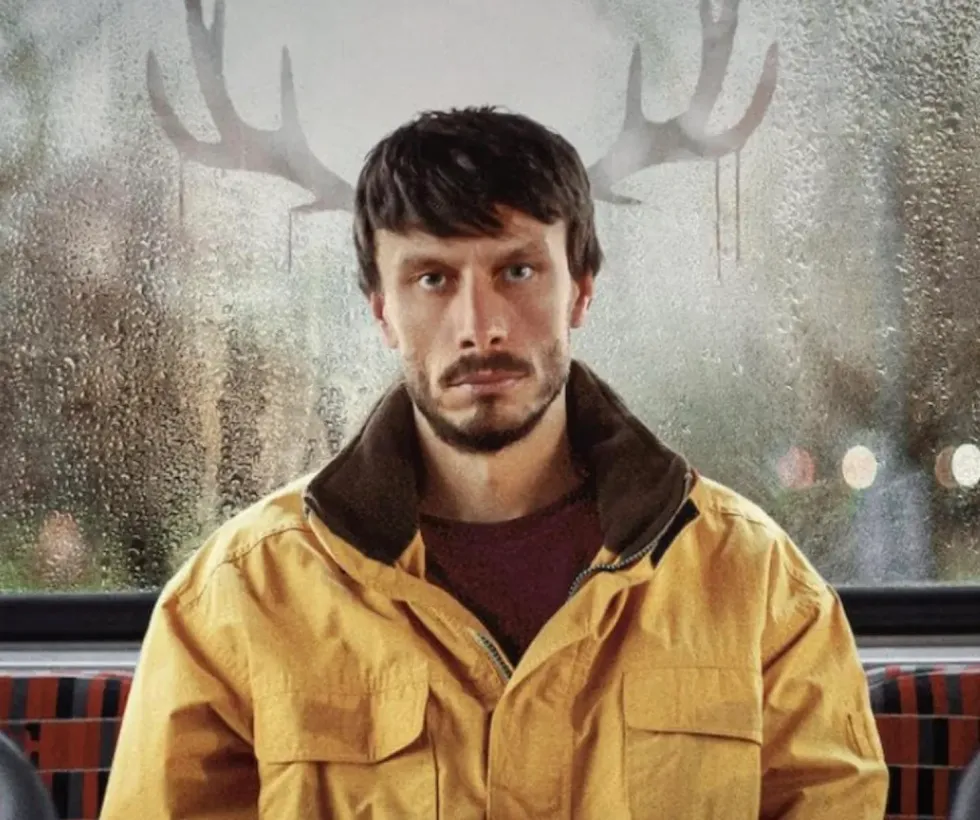
Netflix’s Baby Reindeer is a rare miracle of a hit show. Despite sporting no big names and filled to the brim with dark and potentially triggering subject matter, Baby Reindeer somehow attracted enough viewers to earn 18.6M views from April 29 to May 5.
It still sits in Netflix’s top five as this is written.
If you’re reading this article analyzing the hit miniseries ending, I’m assuming you’re aware of the set up—Donny Dunn (writer Richard Gadd, based autobiographically on his own harrowing experience) is stalked by a a socially off-putting loner named Martha (Jessica Gunning). But, as you likely know, what starts on the surface as a dark dramedy about Donny and Martha’s unfortunate dynamic patiently unravels a deeper thematic spindle of the power of empathy, how that can counter balance against self hatred, and how a journey to be loved can leave you brutally vulnerable.
While not without its laughs (Gadd is a great comedy writer and is never soullessly bleak), Baby Reindeer is certainly not for the feint of heart. If you’ve been sitting on it for a couple weeks or just watched the closing credits, here at No Film School we’d like to offer a safe space to debrief.
Please enjoy our analysis below, and don’t be afraid to cry if you need. I know I sure am!
As implied by the title please be aware there are spoilers below.
The Meaning Behind “baby reindeer” in ‘Baby Reindeer’
The true meaning behind the title of Baby Reindeer is somewhat ambiguous until its final moments, patiently withheld for one hell of an emotional gut punch.
Throughout the course of Martha stalking and harassing Donny she consistently calls him her “wittle reindere” (among other lewd and typo-ridden pet names), but it’s never really revealed why—I personally just assumed it was one of her odd quirks and there wasn’t really any more meaning behind it than that.
Boy, was I wrong.
Once the dust settles and Donny successfully gets Martha to (legally) leave him alone, he falls into an obsession, listening through and organizing all of her old voicemails. The meta context acknowledges this is how Gadd began the writing process for Baby Reindeer itself, but thematically it digs deeper into Donny’s ultimate loneliness and trauma from the abuse he suffered on his quest to find love and acceptance as an alt comedian.
If nothing else, Martha loved and adored Donny for Donny—something he so desperately craved and needed. It held him back from being able to love himself. He was at least someone’s something, even if it meant he was a mildly deranged stalkers… uh… baby reindeer.
But what does “bahby raindeare” really mean to Martha?
In the closing moments of Baby Reindeer Donny sits at a bar and cues a Martha voicemail in his “not listened to” folder. The voicemail plays and Martha says:
“That’s the thing I’ve always wondered. Why people meet, why people fall in love, that kind of thing. And I suppose that brings me to the baby reindeer thing. As I think you’re probably wondering.
Basically, I had this wee cuddly toy when I was young. Went with me everywhere. Earliest memory I have, I think, was Christmastime. This old photo of me, sitting with this paper hat on my head and this baby reindeer beside me.
Anyway, this reindeer was this cuddly, fluffy thing. It had big lips, huge eyes, and the cutest wee bum. I still have it to this day. It was the only good thing about my childhood. I’d hug it when they fought. And they fought a lot, you know?
Well, you are the spit of that reindeer. The same nose. Same eyes. Same cute wee bum. It means so much to me. You… You mean so much to me.
I’ve gotta go.”
After Donny finishes, crying big time, the bartender asks him for his wallet and he realizes he doesn’t have him on him. The bartender offers to cover it, mirroring the kind gesture Donny gave Martha that put their dynamic in motion.
So beautiful.
The Vicious Cycle of Repressed Trauma

While not implying Donny is about to start stalking this kind, suave bartender (sequel alert!), this motion puts Donny in Martha’s shoes just after a revelatory insight into her own trauma and what in many ways beget her own troubling behavior.
While Donny isn’t a stalker, or outwardly, intentionally harmful to anyone in Baby Reindeer, he certainly makes some questionable and sometimes hurtful choices to others—he doesn’t show up for his ex partner Keeley while they’re together, he withholds his identity and abandons his crush Teri on the subway because he’s embarrassed she is trans, he leads Martha on just enough to keep her around until her behavior gets progressively more dangerous.
As we learn in that crazy tonal shift of Episode 4, Donny was groomed and raped as a result of his pursuit of fame and comedic validation, which inherently set off his own self destructive behavior and self-hating state where we meet him in media res.
Donny’s self hatred and repression of his own trauma—something he never told anyone and pushed down as deep as it could go—found itself manifesting in ways harmful to both himself and the people he loves. Just as its implied Martha was never able to move on from her own childhood abandonment issues, Donny is stuck in his own cycle of repressed trauma.
When trauma takes us over and we don’t take the time we need to properly heal from it, it grows like a virus into a terrible, unstoppable beast that only keeps hurting everyone it comes in contact with more and more.
Phew. Now What?

What I really loved about Baby Reindeer was its empathy and humanism towards every character—even Martha with her harassment and violence. In some ways, even in Donny’s sexually and emotionally abusive mentor.
It certainly doesn’t hold any punches portraying the horrible harm humans are capable of inflicting upon each other, but it also delicately takes the time to evaluate why these actions surmount from people that generally are just looking for some sort of connection they can’t find or has been robbed from them. It doesn’t excuse the behavior in any way, but it opens an important window into the corrosion unchecked trauma can create.
As a lesson in screenwriting I think Baby Reindeer is a masterclass of interweaving theme and telling a nonlinear story. Thinking back on the storytelling structure and taking a fine-tooth comb through ever choice it is clearly a meticulously crafter miniseries told with every ounce of care it can possibly muster.
It’s cool to see something so original and emotionally complex pay off with the success it’s gotten. Stick to your heart, fellow writers. The heart is the best way to make something truly special.
For more on Baby Reindeer’s ending read the Netflix ending analysis here. You can stream it on Netflix, too.
Author: Grant Vance
This article comes from No Film School and can be read on the original site.
